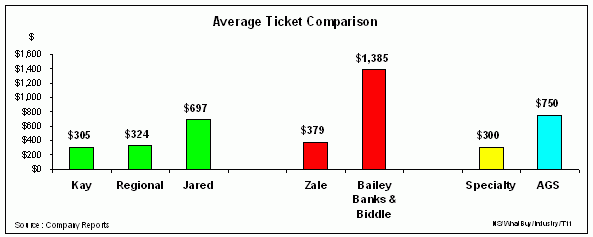IDEX Online Research: Chain Jewelers Gaining Market Share in U.S.
June 07, 06
(The article below has been excerpted and updated from our May 2006 IDEX Magazine)
The top eight largest specialty jewelers sell about 1/3 of all jewelry that is sold in the
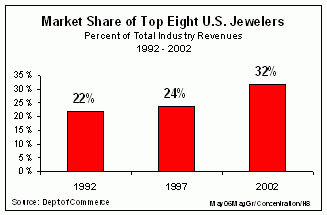
IDEX Online Research can account for about 30 percent of the 32 percent market share held by the top eight specialty jewelers, as the table below summarizes. In part, some of the difference can be explained by the different time periods between the graph (2002) and the table (2005 figures). Either way, the trend is clear: chains are gaining market share at the expense of independents.
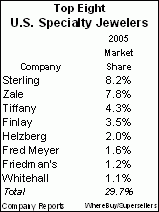
Further, the top eight jewelers identified by the Department of Commerce in its latest Business Census study operate just 21 percent of all the specialty jewelry stores in the
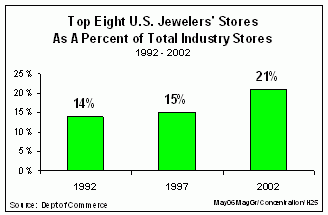
Independent Jewelers Closing
Overall, the total number of jewelry firms in the
The graph below illustrates the overall decline in
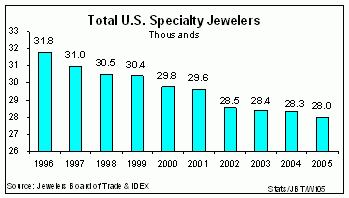
Big Guys Taking Market Share
How have these big chains (Zale, Kay, Finlay, and the others) managed to capture so much market share? The quick answer is this: sales per store among chain jewelers is more than double the level of the single-store jewelers.
According to the latest data from the government's Business Census, the typical
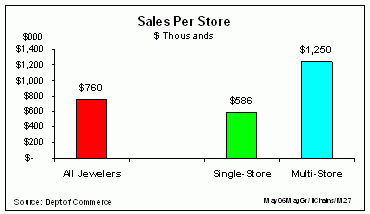
Recent sales reports from both Sterling Jewelers (Kay, Jared, and regional brands) and Zale Corporation (Zales, Zales Outlet, Bailey Banks & Biddle, and other brands) confirm the high sales per store for multi-store operators, as the graph below illustrates.
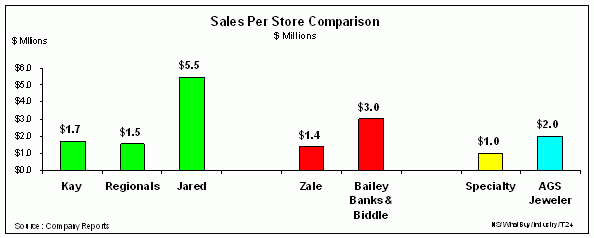
Chain Stores Generate Moderately Higher Average Tickets
In addition to generating greater sales per store and much higher sales per square foot, chain stores typically generate moderately higher average tickets versus single-store operators. A higher average ticket covers fixed overhead costs much more efficiently than a low average ticket. Thus, it is advantageous to generate an average ticket as high as possible.
The graph below summarizes the average ticket for Zale brands, Kay brands, and the typical single-store independent. As expected, AGS stores, which are typically high-end retailers, generate high sales per store.
